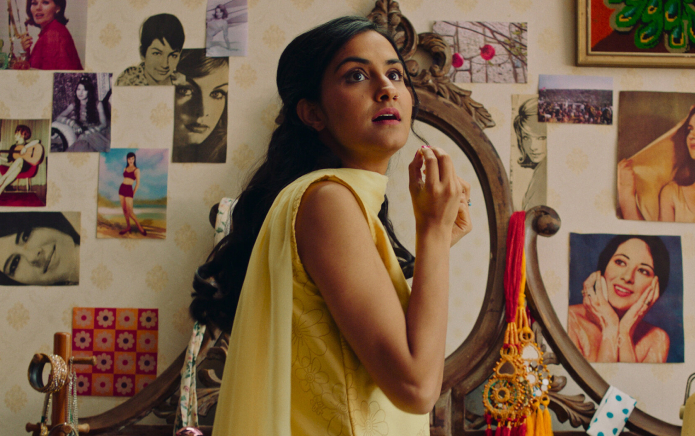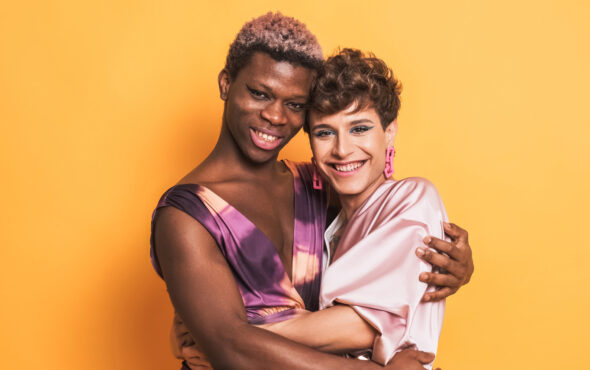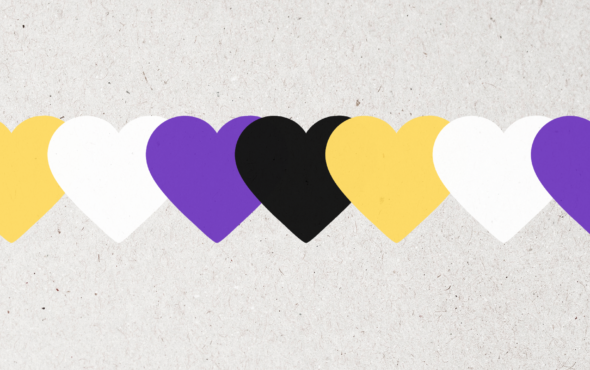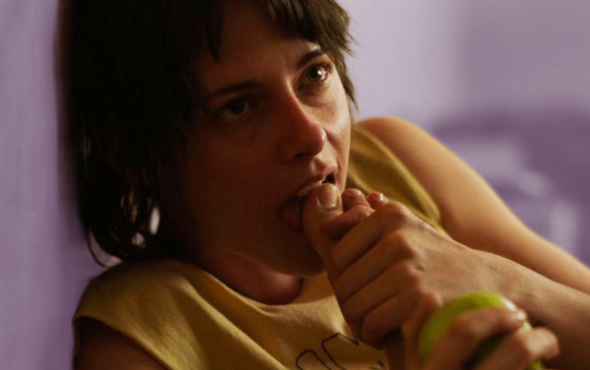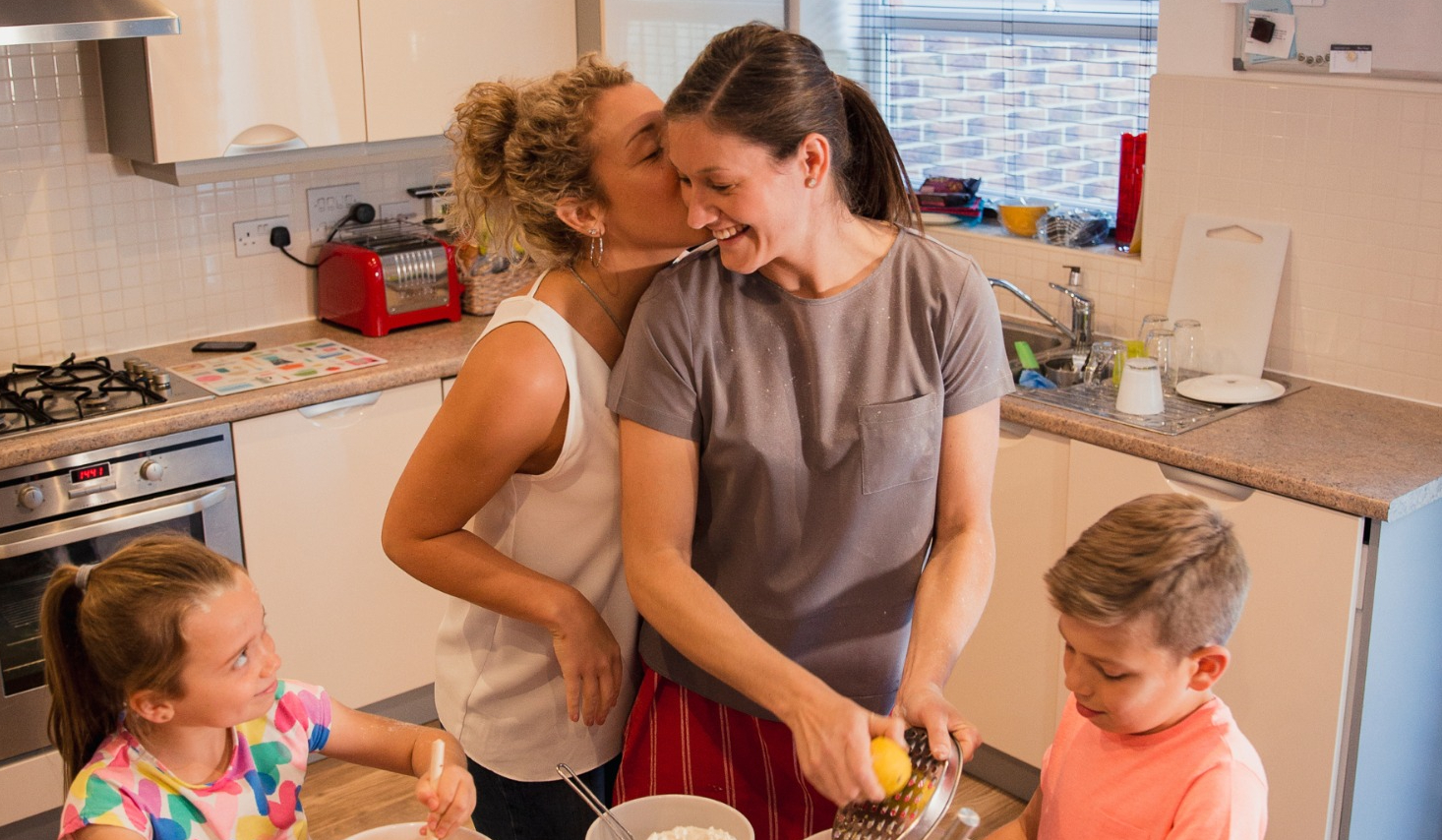
Growing up, I really struggled with internalised homophobia and being in a family that didn’t accept me. But I always knew I wanted children.
Now, as well as being a proud dyke, I am also a very proud mum to my 10-month-old baby who brings my partner and I so much joy.
It has been truly life-changing, healing and sometimes still feels radical to be a lesbian parent in a world so set up for heteronormativity.
LGBTQIA+ parents are nothing new of course (my partner also has lesbian mums, so my daughter will be lucky enough to have lesbian mums and lesbian grandmas!). But thankfully, we are living in a time where LGBTQIA+ people are increasingly able to see it’s possible for us to have children and that reality is slowly being reflected in the representation around us.
Yes, a lot of barriers remain – including eye-wateringly expensive NHS services and private clinics, tough adoption processes and many more issues – but it is increasingly common to hear about LGBTQIA+ people becoming parents.
In fact, there are an estimated 217,000 same-sex couple families in the UK as of 2022 (up 1256% from 16,000 in 1996, according to ONS). There are also many trans and non-binary parents, bisexual parents in opposite gender relationships, gay dads and lesbian mums co-parenting and plenty more kinds of LGBTQIA+ families not included in that figure.
So we’re really not alone. As LGBTQIA+ parents, we are just two of 217,000 same-sex families. And there are around 32,000 nurseries and schools in the UK, so you can roughly estimate that each has at least six children with same-sex parents. And that’s assuming there’s only one child in those families, so there’s likely far more. Ultimately, there’s probably at least one child per year group who will be feeling incredibly isolated if their school makes no effort to be LGBTQIA+ inclusive.
We’re not the majority but it’s fair to say we’re a substantial part of school communities. Yet, somehow, LGBTQIA+ families are still facing huge challenges when it comes to sending their children to nursery and school. I wanted to do something about this.
LGBT+ Parents is a new research report I have written at Just Like Us, the LGBTQIA+ young people’s charity. The research shows that many queer families are dealing with very stressful challenges when it comes to their school communities, leaving them isolated, depressed, anxious and their children are even being bullied and excluded by school peers because of their family structure.
As if creating a family wasn’t enough of a challenge when you’re LGBTQIA+, the research shows that throughout nursery, primary and secondary school, there continues to be unique and disproportionate issues that we have to deal with.
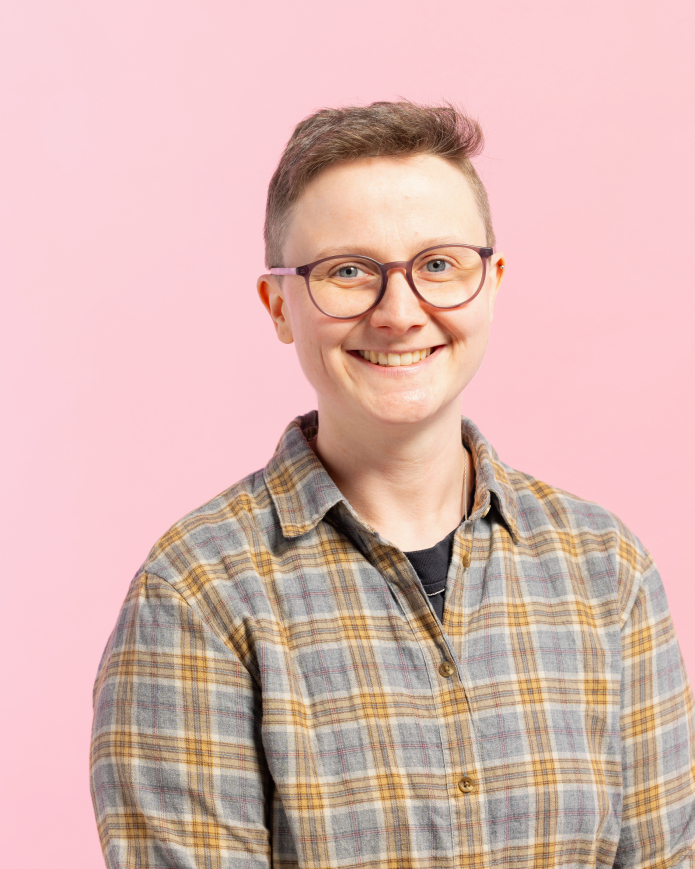
Amy Ashenden
The research found that a third of LGBTQIA+ parents say their school refers to families as “mums and dads” by default, as if we simply don’t exist. More than half (56%) of lesbian and gay parents face negative comments about their families, and so have 42% of their children. Representation has come so far in 2024 but only 1 in 10 LGBTQIA+ parents say their child’s school has LGBTQIA+ inclusive books.
I spoke to several parents as part of our report, who all report schools having the power to dramatically improve their children’s ability to thrive – but many fail to be inclusive.
Shelley, a pansexual mum, told me about experiencing a hate crime where her four-year-old daughter was recently targeted by older school pupils who came to their home, shouting homophobic abuse about her having two mums. They set a newspaper on fire and put it through her letterbox.
Several other parents and their children told me about their fears of bullying, discrimination, a lack of acceptance and their innovative and enthusiastic battles to make sure school isn’t an oppressive environment that punishes their children for having diverse families.
Half of lesbian and gay parents worry their child will be bullied because they have LGBTQIA+ parents, the research found. And only one in five LGBTQIA+ parents say their school would ‘openly discuss LGBTQIA+ families with pupils’.
Social stigma among school communities is also a huge problem. A third of trans parents and a quarter of lesbian and gay parents also report their children being ‘left out of social arrangements seemingly because they are from a LGBTQIA+ family’. 15% of bisexual parents said the same.
My child is only a baby and I’m already worried about what her experiences will be like at nursery and school. The report findings are far from reassuring.
Some LGBTQIA+ parents have even decided to take their children out of school to get away from the lack of acceptance. One in 10 trans parents (11%) report they’ve decided to homeschool their children ‘to avoid anti-LGBTQIA+ prejudice’.
One trans mum told me about feeling isolated in her school community and worrying about how she’ll explain anti-trans stickers in the local area to her child as he grows up. But she also shared how her child’s nursery has made an effort to be LGBTQIA+ inclusive and how that has hugely helped their family life and her son’s happiness. She mentioned small things like not assuming his family set up and asking what he prefers to call his parents.
Often it is small things that nurseries and schools need to do that can have hugely positive impact – such as having inclusive books, displaying posters, having open conversations about different kinds of families, and mentioning LGBTQIA+ people in the curriculum.
But we are a long way from all schools embracing LGBTQIA+ families and not assuming every parent is heterosexual and cisgender.
Until then, Just Like Us will keep working to support schools on their journey to inclusion. And I’ll keep fighting to make the world a better place for my daughter so she can grow up knowing that having two mums that love her more than anything is actually a pretty amazing thing.
LGBT+ Parents is out now – read the full report on Just Like Us’ website here.
